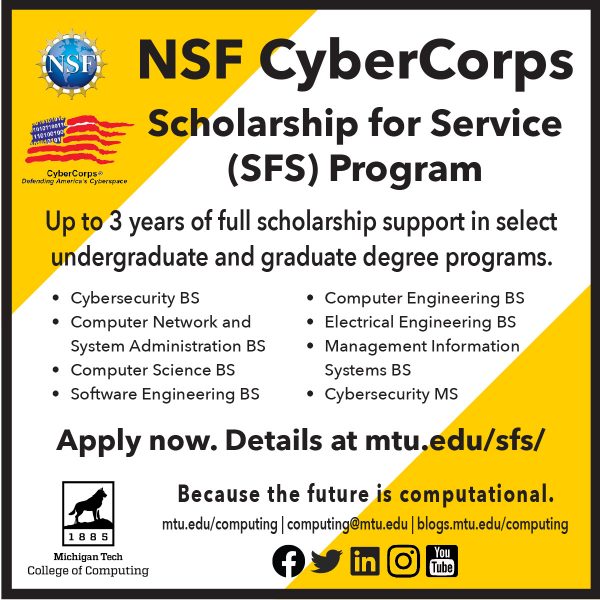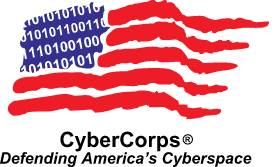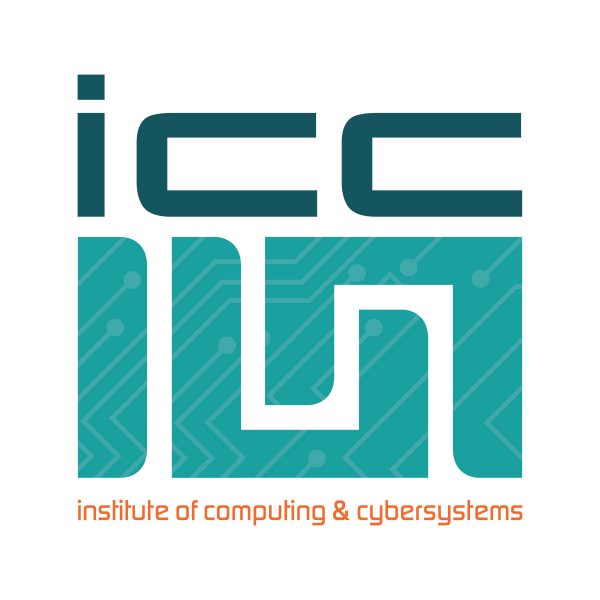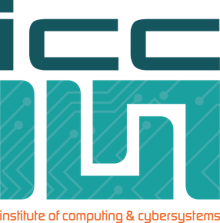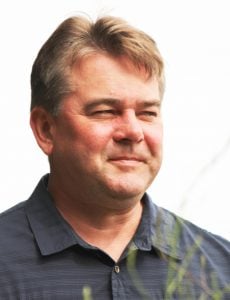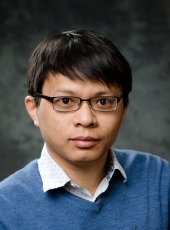by Yu Cai, College of Computing
A GenCyber Cybersecurity Teacher Camp for K-12 teachers will be held at Michigan Tech during the week of July 19 – 23. Participants will learn cyber hygiene and fundamental security knowledge including email phishing, password management, and cyber ethics. Participants will also learn how to develop lesson plans to teach cybersecurity in K-12.
This is a residential camp (commuting optional), and is offered at NO COST to all participants. Room and board is included. Each teacher participant will receive a stipend of $500 for attending and completing camp activities. Camp activities will count for 25 State Continuing Education Clock Hours (SCECH).
Click here for more information and to apply. The application deadline is May.
Funding for the camp is provided jointly by the National Security Agency (NSA) and the National Science Foundation (NSF) through an award led by Yu Cai and Tim Van Wagner from the College of Computing.
